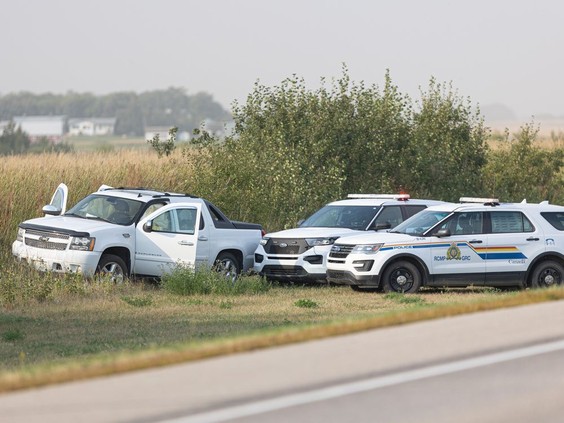
The RCMP is reviewing recommendations made in the report, which suggests well over half of RCMP members surveyed reported a positive screening for a mental health disorder within the 12 months prior to being asked.
Brandon Harder, Regina Leader-Post
A union representing thousands of Mounties is calling for greater supports following the release of a report which suggests mental health disorders are widespread and on the rise within the national police force.
Entitled “Behind the Badge: Revealing Escalating Mental Health Injuries Among RCMP Members,” the report was released on Feb. 27 and authored by the National Police Federation (NPF). Much of it is based on research conducted by academics at the University of Regina (U of R).
The new RCMP-specific study was designed similarly to an earlier one that looked at Canadian public safety personnel, according to a U of R news release on the report, which allowed psychology professor Nicholas Carleton and his research team to compare results.
A table presented within the report on self-reported mental health disorders among RCMP members surveyed suggests a rise across all listed categories between 2018 and 2023.
That includes a 17.7-per cent rise in Post Traumatic Stress Disorder, a 10.2-per cent rise in Generalized Anxiety Disorder, a 12.9-per cent increase in Major Depressive Disorder, a 4.4-per cent rise in Social Anxiety Disorder and a 9.3-per cent rise in Panic Disorder.
According to the report, 64.7 per cent of RCMP members surveyed for the recent study reported having screened positive for one or more mental health disorders within the past 12 months — up from 50.2 per cent in the earlier study.
“The results are really concerning,” Carleton wrote in an email to the Leader-Post, noting these figures only represent currently-serving members, and does not include those on leave, who he feels would’ve elevated the percentage.
The report goes on to say RCMP participants in the 2023 study reported higher operational and organizational stress than those who participated in the earlier study.
“Unfortunately, the current state of mental health of Members as well as occupational and organizational stressors is worsening, outlining the immediate need for investment in comprehensive, accessible, and evidence-based mental health supports,” the report states.
It also suggests RCMP members are more than three times more likely than a member of the general public to have contemplated suicide in the past year, and more than five times more likely to have planned a suicide.
The new research reveals “the mental health of serving RCMP members is getting worse,” Carleton said in the release.
When asked whether a rise in awareness and reduced stigma could account for escalation in reported mental health disorders, Carleton said it is “theoretically possible.”
However, “based on what we know so far, I don’t think that’s the most parsimonious explanation for the difference,” he continued.
Noting the potential for other possibilities, the professor suggested that “in the absence of additional evidence” the most likely explanations involve “broad stressors” acting on the RCMP since 2018, including mass casualty events, public calls for organizational changes and natural disasters.
“Fatigue, staff shortages, and resource constraints, exacerbate the challenges they face,” the release notes.
The RCMP has come under scrutiny over staffing shortages, including from the mother of Const. Shelby Patton, an officer who died after being run over while conducting a traffic stop on a stolen vehicle in 2021.
In parts, the NPF-authored report praises the RCMP for its efforts toward certain mental health initiatives, but it also criticizes the national force for engaging in “patchwork solutions addressing the mental health of its Members.”
The report contains a series of recommendations and notes: “The NPF aims to change the framework of how the RCMP deals with Member mental health.”
The recommendations include calls for expansion or fulsome implementation of supports and initiatives. They also ask the RCMP to address staffing issues in relation to the delivery of mental health supports.
“The recommendations put forth by the union are important considerations, and we are actively reviewing them to assess their feasibility and impact on our organization,” said a written statement provided on behalf of the RCMP.
RCMP members are “at increased risk for mental health issues and illnesses,” the statement acknowledges. It goes on to state the health and safety of its members is a “top priority,” noting the force takes “work-related stress and mental health injuries and issues very seriously.”
“A number of well-being programs and services are available to support our organization, our employees and their families,” the statement reads, going on to list a number of such programs, some of which received praise in the NPF report, which asked for them to be continued or strengthened.
“Given the investment in research on the mental health of regular members, we are moving toward a more evidence-based approach to mitigating mental health issues among Public Safety Personnel (PSP).”
bharder@postmedia.com

